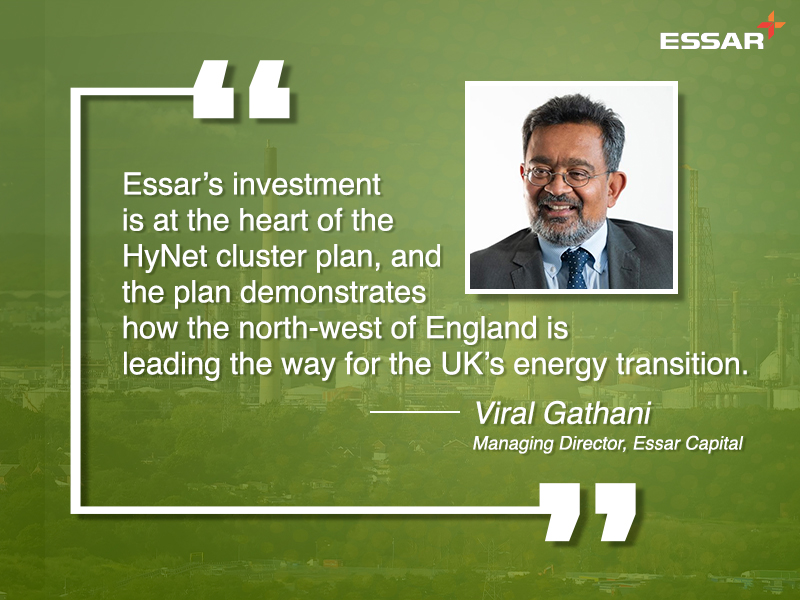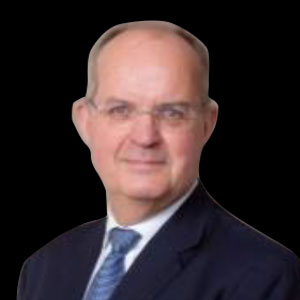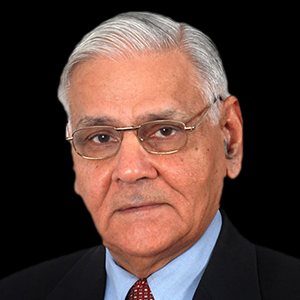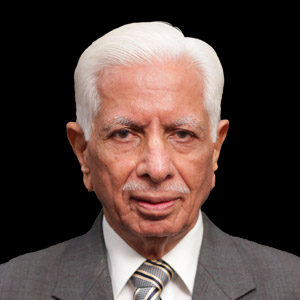Stanlow Refinery’s green transformation heralds bigger changes for the region

An ambitious £30bn plan to turn the UK’s north-west into the country’s first net-zero industrial cluster is gathering steam thanks to Essar’s pledge to convert its Stanlow Refinery into a green energy hub.
The Indian conglomerate’s recently announced $2.4bn transformation of its refinery in Ellesmere Port, between Manchester and Liverpool, is among the first concrete steps towards realising the government- and industry-backed plan to decarbonise the region’s industrial cluster which is among the six most-polluting in the UK.
“Our investment is at the heart of the cluster plan, and the plan demonstrates how the north-west of England is leading the way for the UK’s energy transition,” said Viral Gathani, managing director at Essar Capital, the group’s investment management arm.
The so-called ‘Net-Zero North West Cluster Plan’, which was announced in January, claims to have identified a pipeline of 60 clean energy projects that are collectively valued at £30bn. They span hydrogen, tidal and wind power, small modular nuclear reactors, smart grids and carbon capture and storage.
The goal is to transition the north-west into the UK’s first net-zero industrial cluster by 2040 — a title for which it is competing with the Humber, a region that is also pursuing a large-scale decarbonisation strategy.
Delivering the plan is also expected to unlock £177bn of subsequent investment in the region. Philip Cox, CEO of the Cheshire and Warrington Local Enterprise Partnership, part of the consortium driving the plan, said foreign firms will “without a doubt” feature in these new projects. “A ready supply of zero-carbon energy [would] make it an extremely attractive place for people to come and do business,“ he said.
Transforming critical infrastructure
Mr Cox describes the 99 year-old Stanlow Refinery, which is among the UK’s biggest and produces 16% of the UK’s road fuel, as “critical national infrastructure”. Essar’s $2.4bn plan to transform the sprawling facility, whose contribution to the local economy is estimated at £60m per year, is part of the group’s shift towards cleaner fuels. Once fully implemented, it will slash industrial emissions in England’s north-west region by 20%.
The multi-pronged project includes the production of blue and green hydrogen, ammonia and biofuels, plus the decarbonisation of the refinery’s production of traditional fuels, which will continue “for as long as they are required — even as they are phased out over the next couple of decades,” said Mr Gathani.
Other investments connected to the plan have been announced since Essar made its $2.4bn pledge on February 27/ On April 27, British travel group Jet2 said it was making a “significant investment” in a waste-to-aviation fuel project to be located at the refinery.
On March 30, the UK government selected Stanlow’s blue hydrogen project as one of four hydrogen developments to advance to bilateral negotiations for government financial support. Once running at its full capacity of 3.8 gigawatts (GW), the project — which Essar is developing via its Vertex Hydrogen joint venture with Britain’s Progressive Energy — will provide nearly 40% of the government’s current target of 10GW of hydrogen production by 2030.
Subject to finance
Realising Essar’s multi-billion dollar vision for the Stanlow Refinery depends on the evolution of UK hydrogen rules. Mr Gathani told fDi that progress on funding is “positive” but the “bulk” of the $1.2bn worth of capital earmarked for its blue hydrogen project will only be confirmed once the government finalises rules for the market’s regulation. That is expected by the end of the year, he said, and is something Essar is “working closely” with the government on.
Despite the scale of Essar’s ambitions for Stanlow, Mr Gathani is confident its transformation into a low-carbon energy hub will materialise. He points to the fact it is investing across a range of technologies, including both blue and green hydrogen, decarbonisation investments and biofuels. “We therefore believe we are flexible and well positioned to address the new markets however they eventually evolve,” he said.
Source: FDI Intelligence.com
































